Project Name:
Black PRAISE
Funding Dates:
Apr 2014 - Mar 2017
Status:
Completed
Principal Investigators:
Liviana C, Winston Husbands, Wangari Tharao
Description:
African, Caribbean and Black (ACB) people who are infected with HIV through heterosexual contact are over-represented among the estimated number of people living with HIV (PHA) in Ontario. Previous research has showed that HIV-related stigma originating within and outside ACB communities negatively affects the wellbeing of PHA and hampers community responses to HIV. People who experience (or expect to experience) stigma are less likely to get tested for HIV or avail themselves of treatment, care and support. Therefore, in the presence of stigma, programs to curb the spread of HIV or improve the wellbeing of PHA are less likely to succeed. Researchers, service providers, community members and faith leaders from ACB communities are collaborating to develop, implement and test a stigma-reduction intervention for ACB faith communities.
Purpose and Objectives:
The intervention aims to reduce inappropriate fear of contagion, negative beliefs about PHA, and the tendency to stigmatize certain population groups based on previous negative attitudes towards them. The intervention activities - a pamphlet on HIV transmission, living with HIV, and HIV treatments; sermons and testimonials; and health fairs - will be implemented over a 6-month period in six churches in Toronto, Ottawa, Windsor and Kitchener-Waterloo. The number of ACB congregants we will reach is 1,125. The research team will conduct a survey among the participating congregations prior to launching the intervention, at the end of the intervention period, and three months after the end of the intervention, to determine whether the intervention is associated with a reduction in stigma. The team will also interview 18 participants to examine their experience with the intervention and will monitor any events that are likely to affect the intervention. Our knowledge transfer activities will ensure that other churches and community organizations in Ontario are appraised of the results, and the process for implementing the intervention.
Method:
Mixed methods
Population:
ACB faith-based congregations
Region:
Ontario
Start and End Date:
2014 - 2017
Results:
Participants increased their knowledge about HIV after participating in the intervention: Among the 78 congregants who completed all three surveys, their average knowledge score was significantly higher after the intervention (71.8 at the first follow-up and 73.3 at the second) than before (63.2 at baseline). A similar pattern was evident for the other groups of congregants who completed the baseline survey and at least one follow-up. Congregants also decreased their level of stigma after participating in the intervention. Among the 61 participants who completed the baseline and first follow-up surveys only, the average stigma score was significantly lower at follow-up (49.6) than at baseline (52.2). Among the 76 participants with the highest level of stigma at baseline (i.e., higher than the baseline average), the average stigma score at follow-up (54.0) was significantly less than the score at baseline (59.5). The reduction in stigma depended on the number of intervention components to which participants were exposed. Congregants who were exposed to two or more components significantly reduced their level of stigma compared to those who were just exposed to one educational tool.
Project Indicators and Outcomes:
Funding Sources:
CIHR

